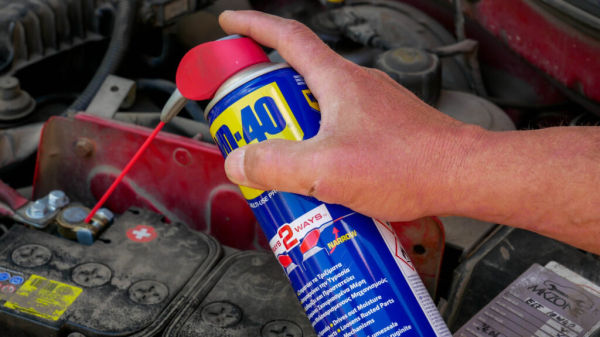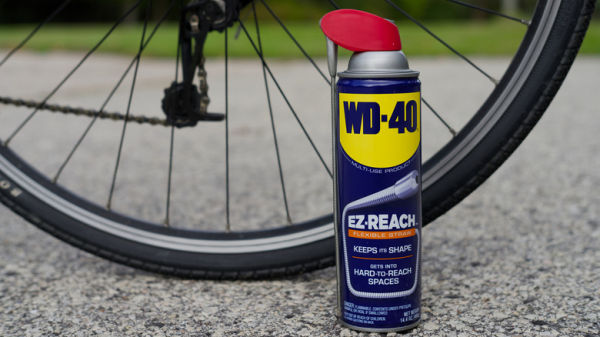We may receive a commission on purchases made from links.
The WD-40 Company has listed over 2,000 uses for its iconic Multi-Use Product, but is it safe to use on rubber or rubberized parts? The answer is confusing, to say the least, since the WD-40 Company has issued no direct yes or no answer to whether the WD-40 Multi-Use Product is safe for rubber parts or components.
It has become a staple for its numerous unexpected uses around the home or job site; there are tons of WD-40 hacks that you wish you knew sooner. It’s essentially a permanent fixture in any garage for its many practical uses. The WD-40 Multi-Use Product can displace moisture and lubricate almost anything, but it’s not a miracle spray.
There are things that you shouldn’t use WD-40 on, as it can do more harm than good. But does this include rubber? Not necessarily, since the massive list of possible uses for WD-40 includes adding shine to car tires, keeping rubber door weather gaskets soft and pliable, removing marks from rubber surfaces, and maintaining the softness of the windshield wipers (which have rubber or rubberized blades) to prevent cracking or drying in the summer. If WD-40 is unsafe to use on rubber, then why is the use list peppered with cleaning or lubrication tips for rubber parts?
Do not soak rubber in WD-40
Here’s the catch: WD-40 did not test each of the 2,000+ entries in the published use list. Furthermore, the list of uses for the WD-40 Multi-Use Product was from end-users and does not constitute suggestions or recommendations for the use of the product by the WD-40 Company. This writer has been using WD-40 since learning to drive and tinker with cars in the late 1990s, and I have never managed to stain, discolor, or permanently damage a rubber part of my car during my years of using it.
Then again, WD-40 may be relatively safe as a cleaning and lubricating spray for rubber hoses or rubberized door weather seals, but soaking rubber in WD-40 might cause the material to swell or deteriorate. The WD-40 Company admits that its Multi-Use Product contains 50% mineral spirits, which should serve as a warning if you plan to use the product for lubricating or cleaning rubber seals and bushings.
Mineral spirits or white spirits are petroleum-based solvents that don’t mix well with rubber. It’s why cleaning an ethylene propylene diene monomer (EPDM) RV roof using petroleum-based cleaners or citric-based chemicals is a big no-no, especially mineral spirits that can react with the rubber material and cause discoloring, swelling, and deterioration.
If you want a WD-40 product to clean, protect, and lubricate non-metal surfaces and parts, the Specialist Silicone quick-drying spray is a better bet. It lubricates rubber, plastic, and vinyl materials, and it works great for cables, pulleys, hinges, and guide rails. Moreover, silicone formula leaves a transparent, non-staining film that doesn’t attract dust or dirt.









